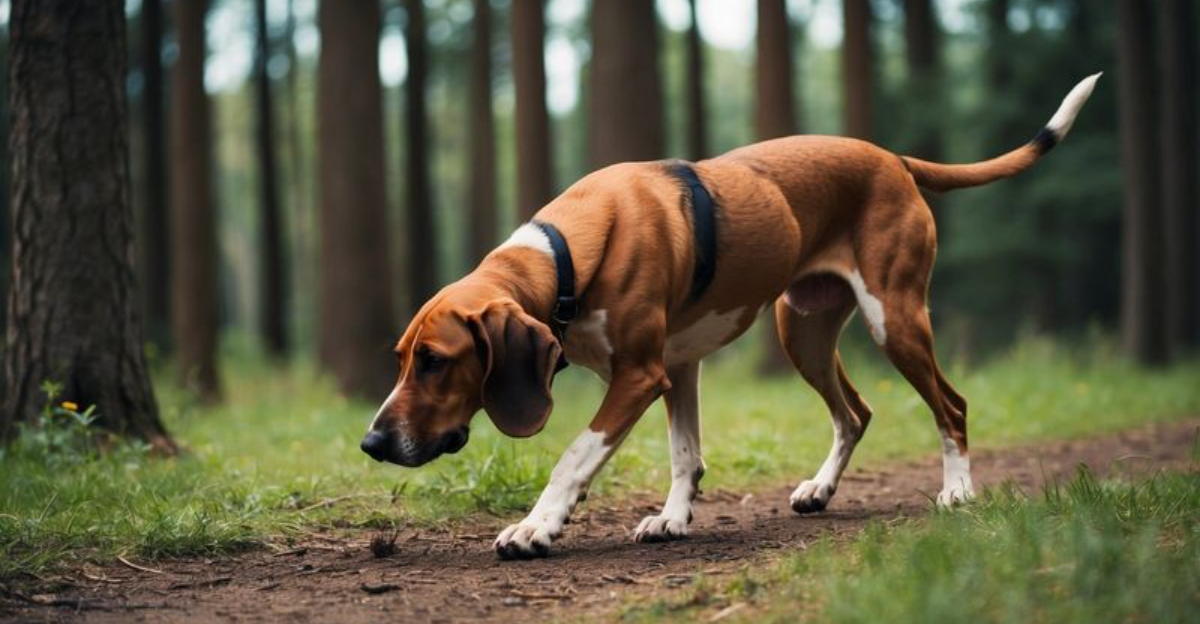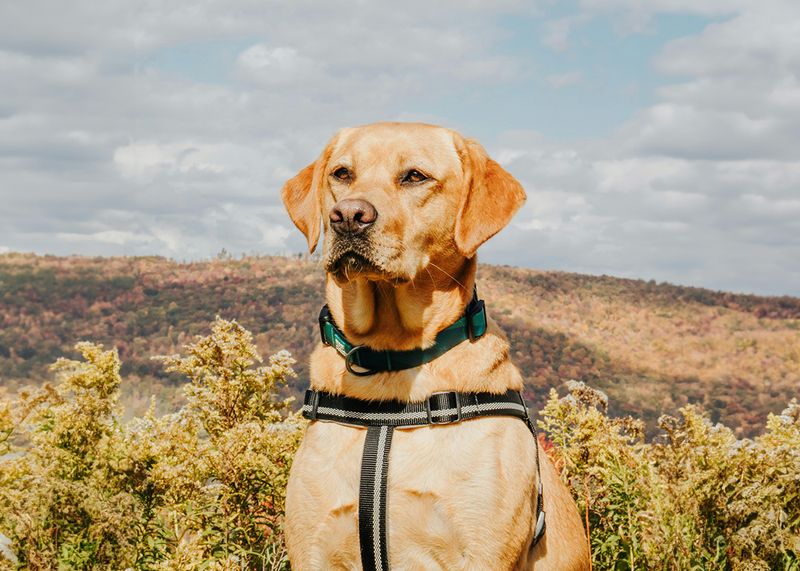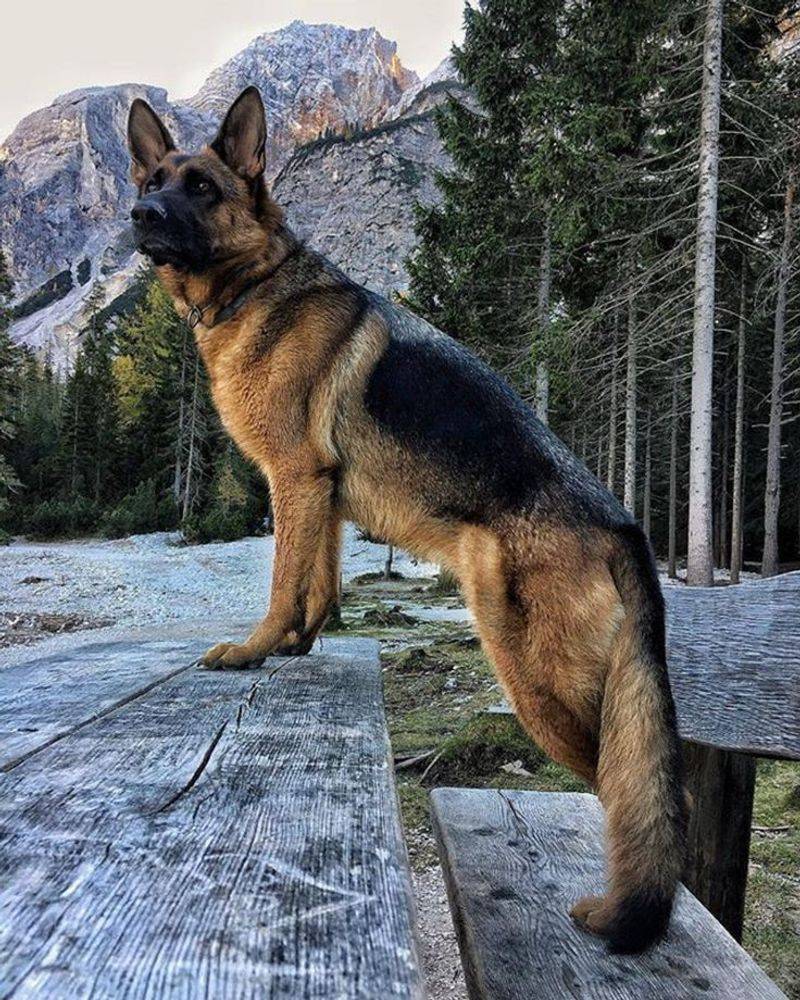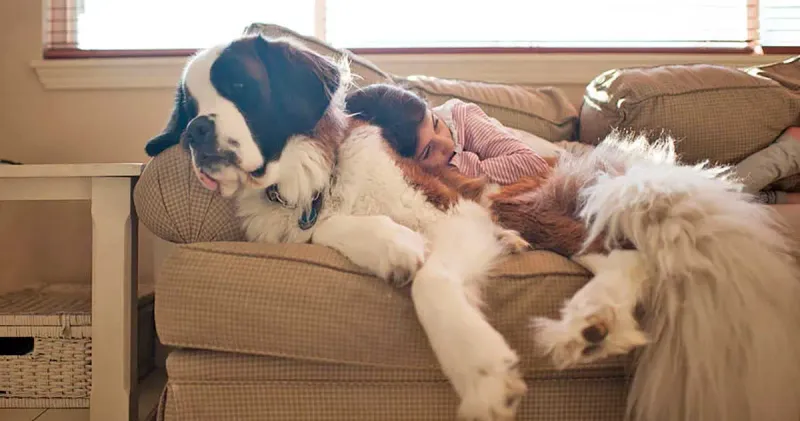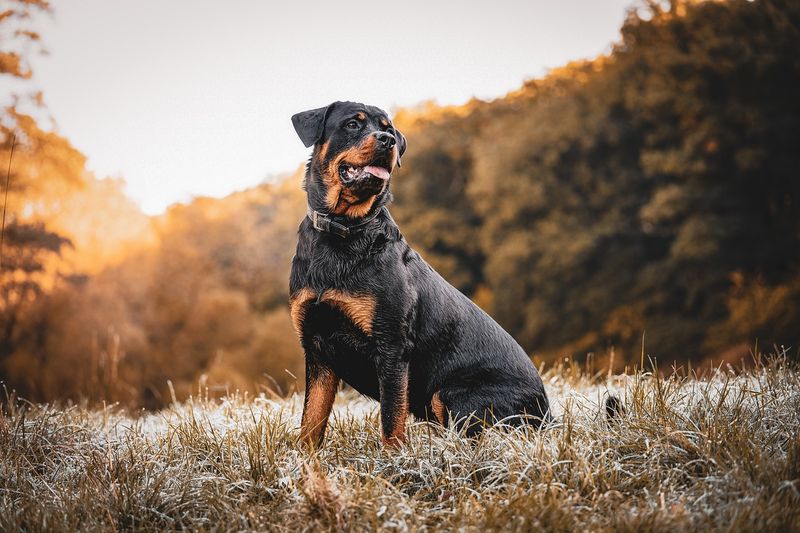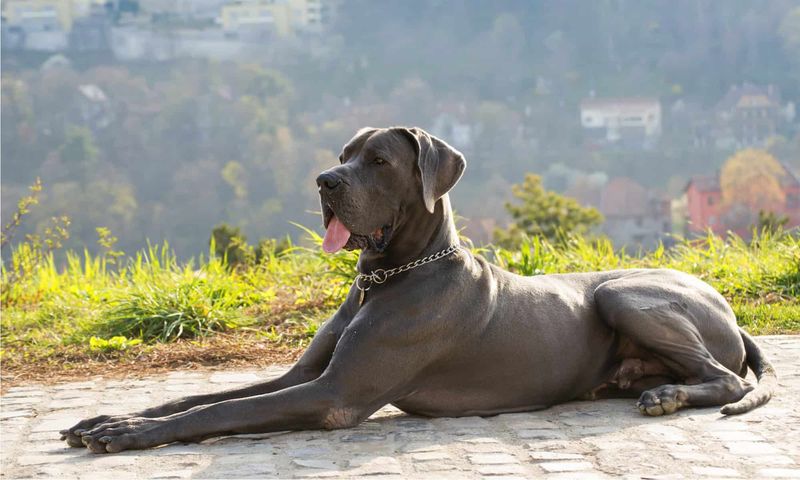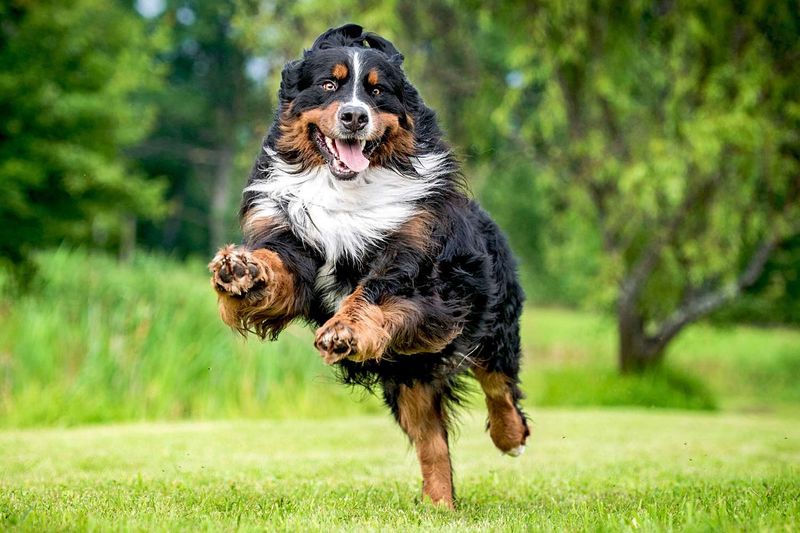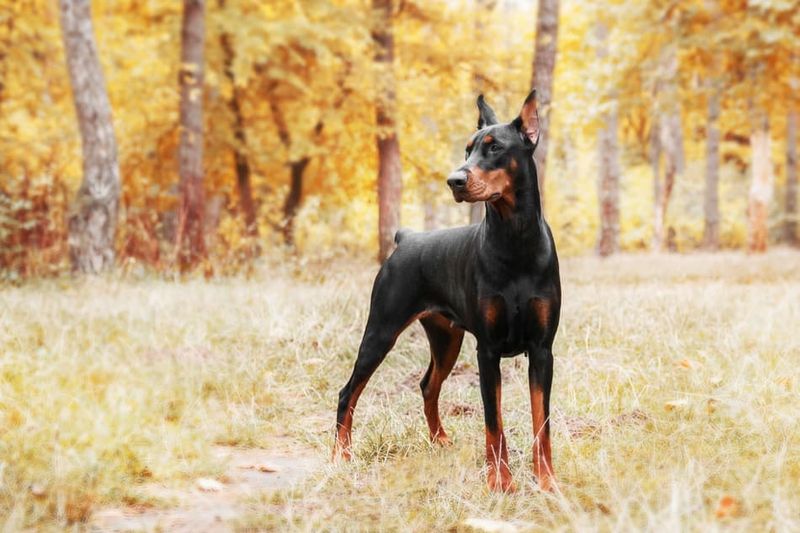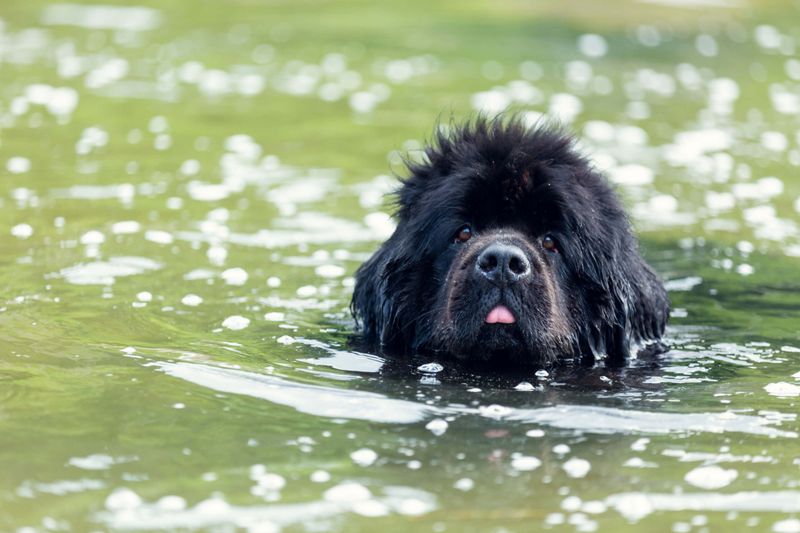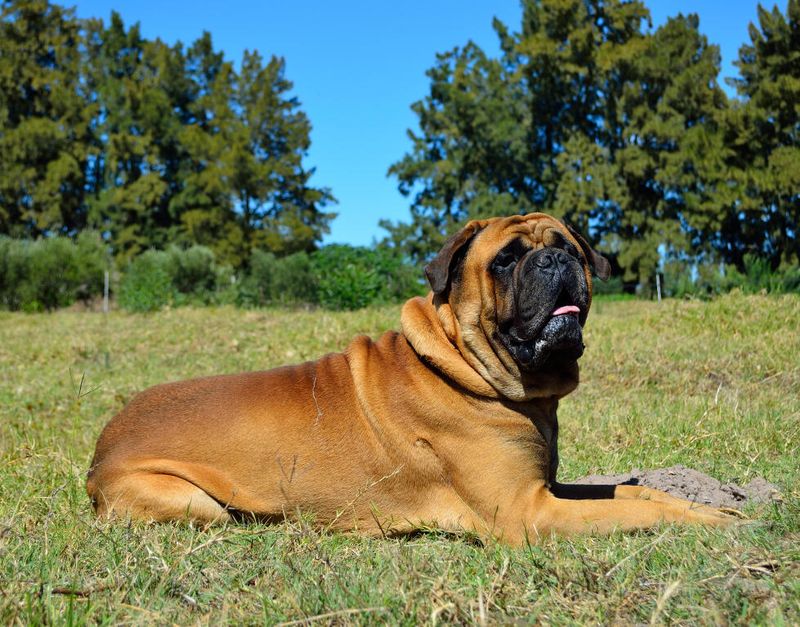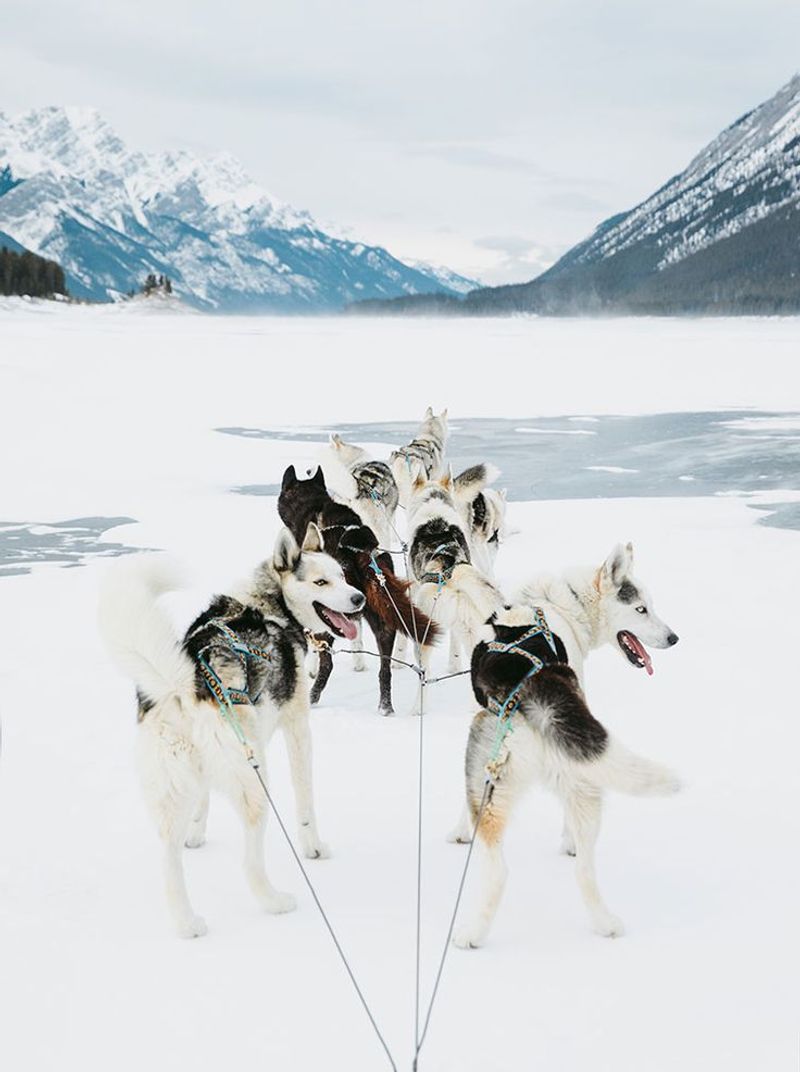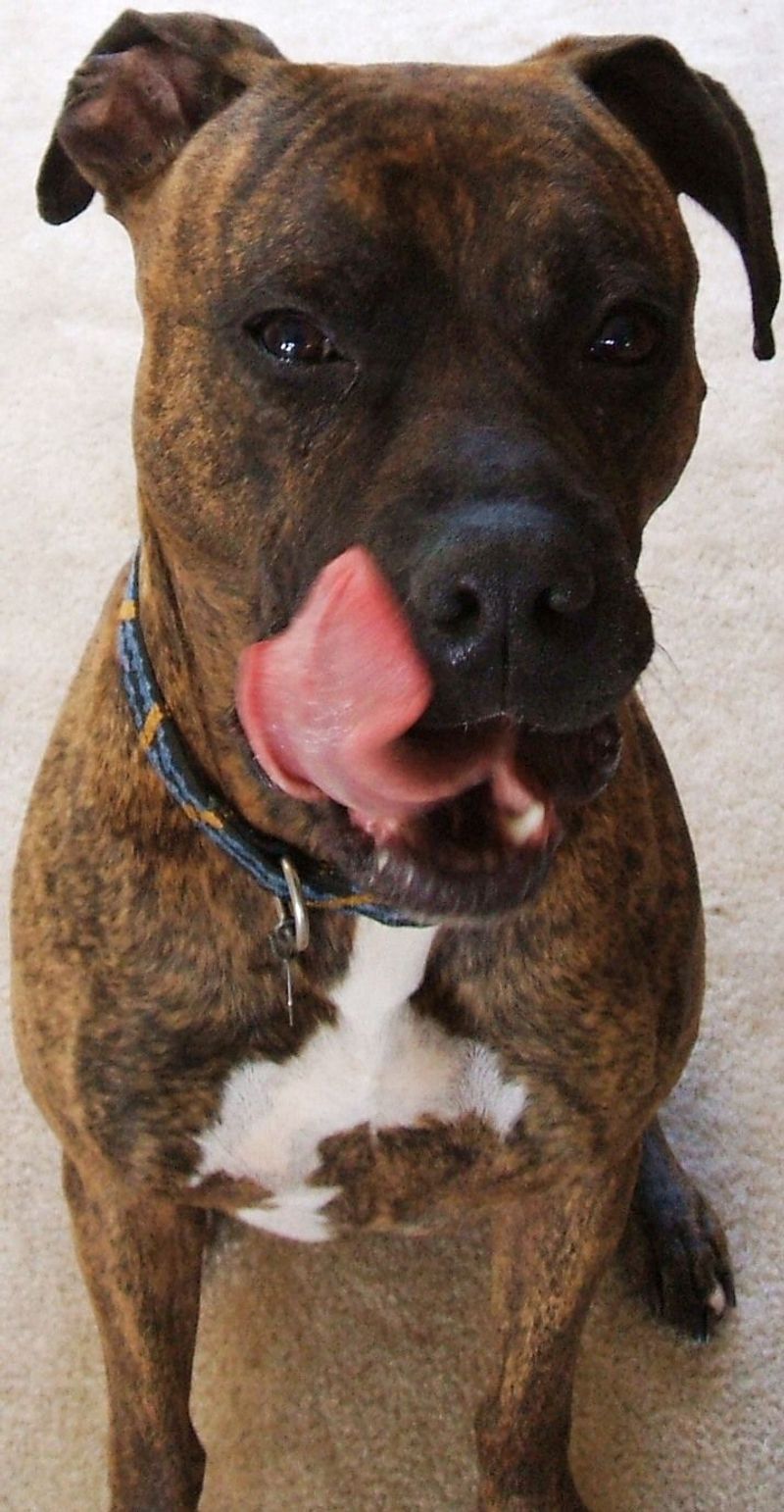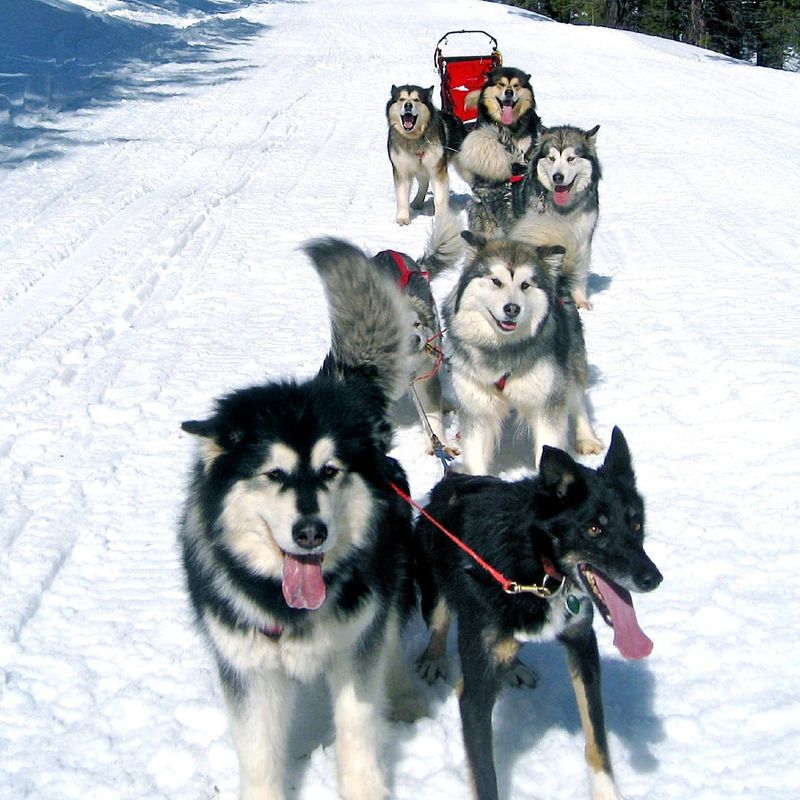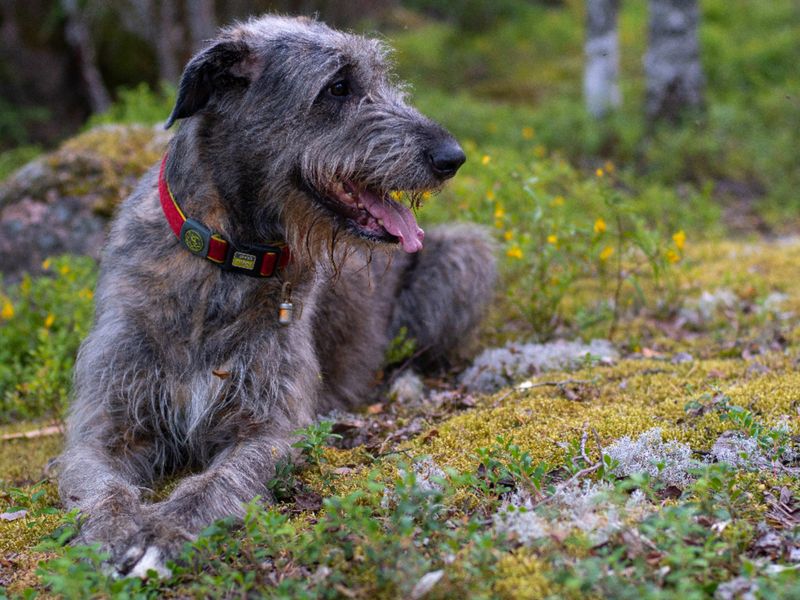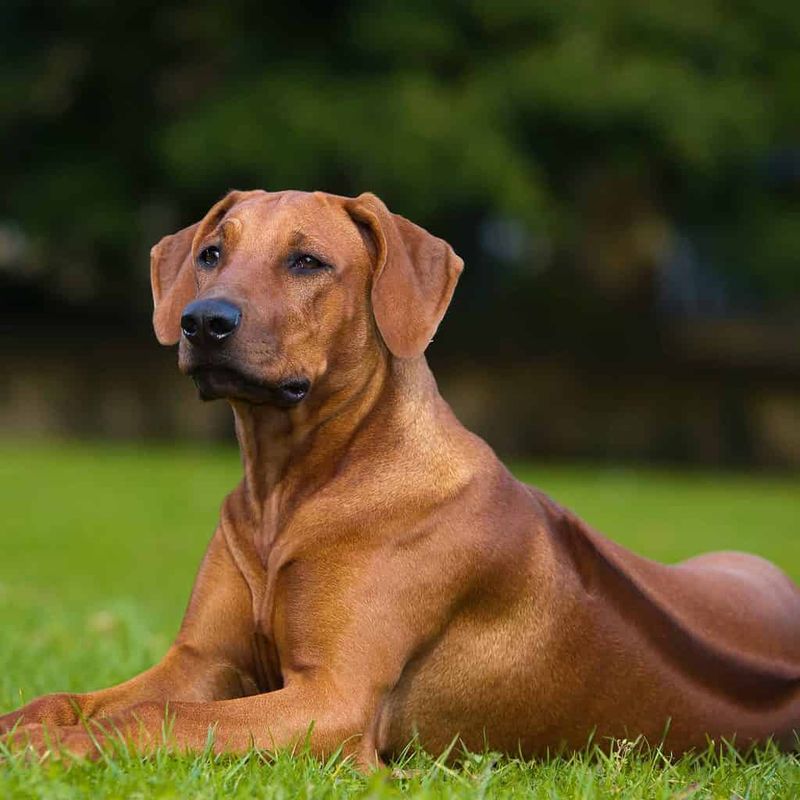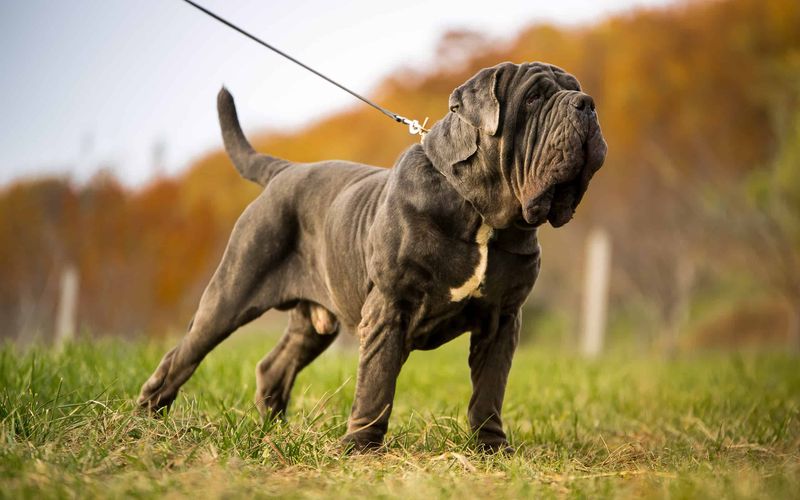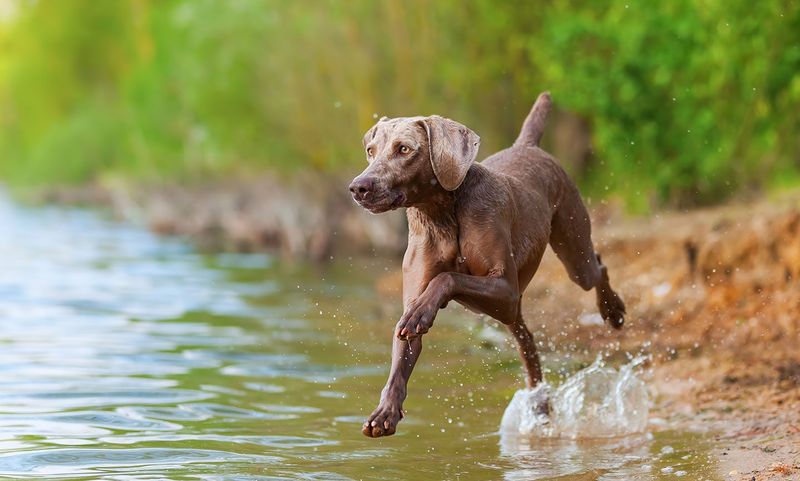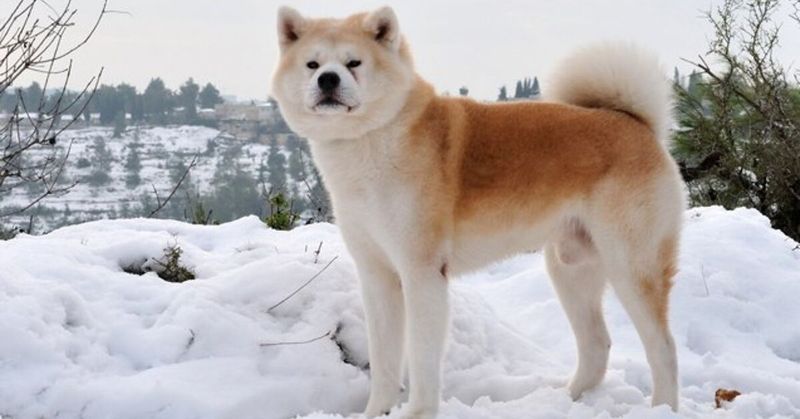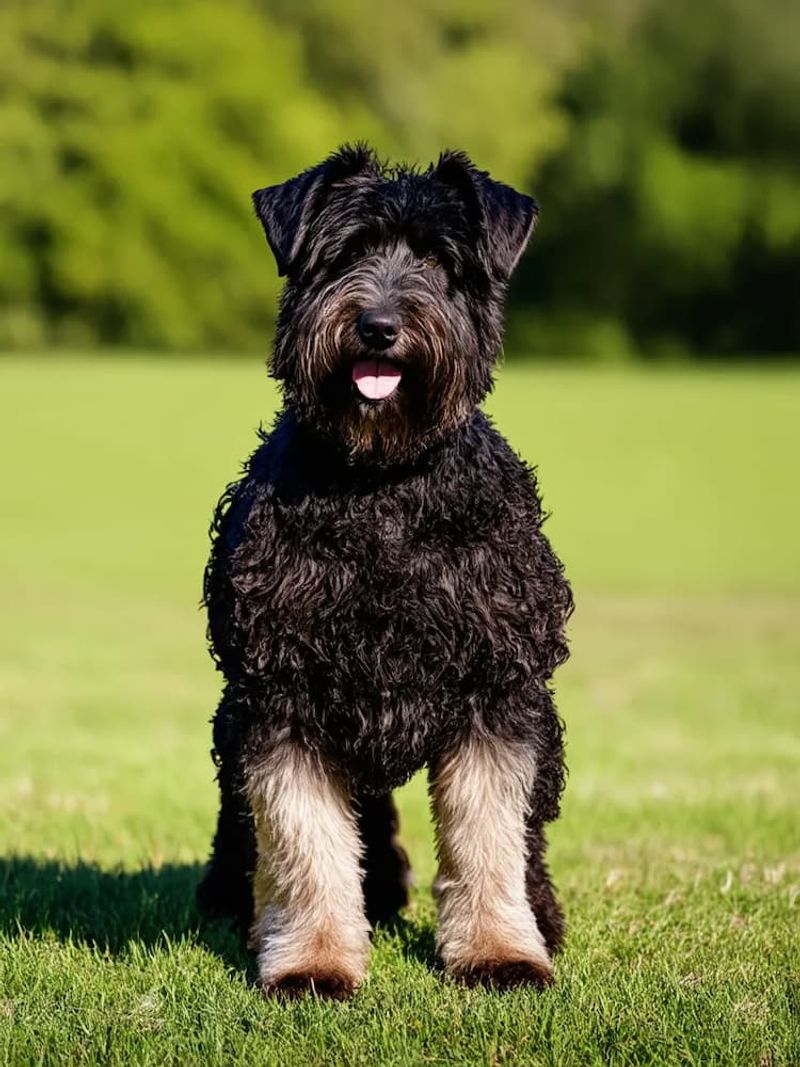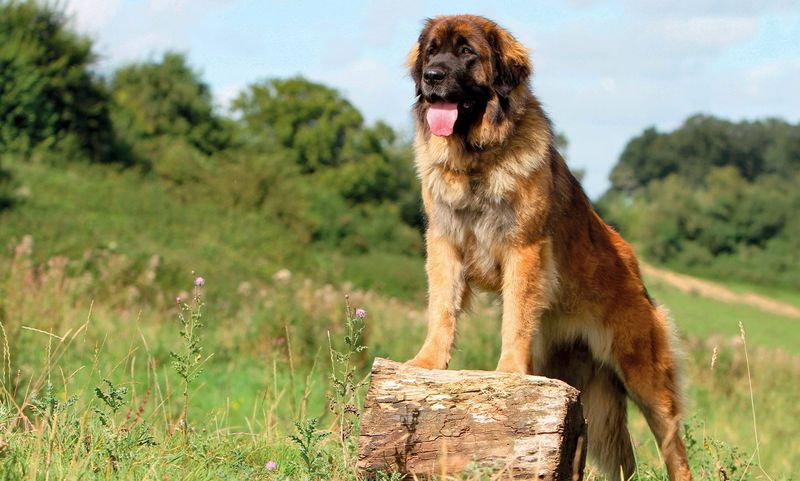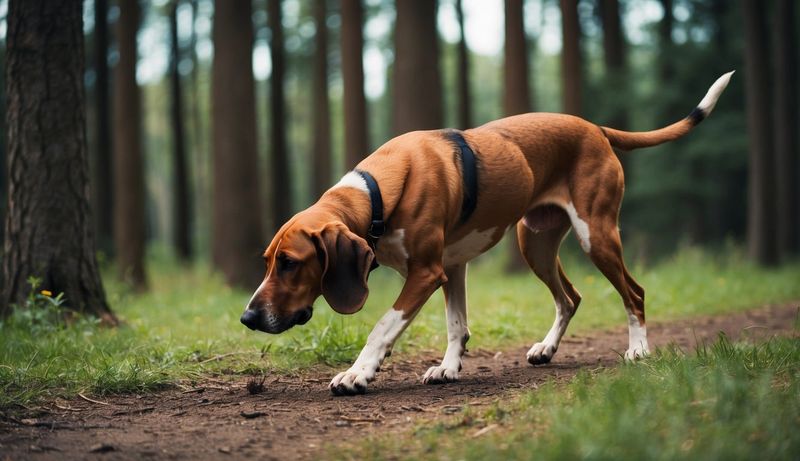Large dog breeds often possess unique behavioral traits that can lead to boredom and destructiveness if not properly engaged. In contrast, some of these breeds can flourish when given meaningful tasks or responsibilities. This article explores ten large breeds prone to boredom and another ten that excel when assigned jobs, providing insights into their distinct characteristics and needs.
Labrador Retriever
With boundless energy and a zest for adventure, the Labrador Retriever can become a whirlwind of mischief if left idle. Imagine a backyard transformed into a muddy playground as this curious canine digs, chews, and explores relentlessly. Without sufficient mental stimulation, Labs often channel their intelligence into creative chaos.
Yet, give them a task, and watch their focus transform. A simple game of fetch or agility training can redirect their energy into constructive pursuits, showcasing their adaptability. Their eagerness to please makes them ideal candidates for roles like search and rescue or therapy work.
German Shepherd
Known for their loyalty and protective instincts, German Shepherds require constant engagement to prevent boredom from turning into destructiveness. These intelligent dogs thrive on challenges, whether it’s herding, guarding, or solving puzzles.
A restless Shepherd may resort to barking, chewing, or escaping when not given a purpose. Training and consistent leadership help harness their energy positively. In contrast, when tasked with work, like police or service roles, their natural talents shine, revealing the breed’s full potential. Their discipline and dedication make them exceptional workers and companions.
Saint Bernard
The gentle giant, Saint Bernard, can easily become a couch potato without proper engagement. Picture this fluff ball lounging lazily, gazing wistfully at the world outside. Their size might suggest a need for limited activity, but they do crave mental stimulation.
Left unoccupied, Saint Bernards might develop stubborn habits. Engage them with interactive toys or light tasks, and watch their demeanor change. They are known for their search and rescue prowess, a role that aligns perfectly with their calm, patient nature. Their loyalty shines when given a purpose beyond their snoozing spells.
Rottweiler
Rottweilers possess a striking presence with a mind as sharp as their gaze. Neglecting their need for mental and physical stimulation can lead to unwanted behaviors, such as persistent barking or chewing.
Engaged in a task, Rottweilers become dedicated and focused companions. Whether it’s obedience training or participating in canine sports, they thrive on challenges. Given their protective nature, roles in security or as service dogs suit them well. Their loyal disposition combined with a strong work ethic creates a perfect blend for tasks requiring intelligence and vigilance.
Great Dane
The Great Dane, a gentle giant, can sometimes feel the weight of boredom. Their towering presence doesn’t overshadow the need for mental and physical activity.
A bored Great Dane might knock over furniture or become excessively vocal. Encourage their playful side with interactive games or short walks. They respond well to commands and enjoy activities that challenge their minds. Known as excellent watchdogs, they can adapt to roles requiring observation and patience. Their gentle demeanor, combined with their desire for companionship, makes them both loving pets and effective workers.
Bernese Mountain Dog
With their tri-colored coat and soulful eyes, Bernese Mountain Dogs are hard to resist. However, their charming appearance conceals a need for purposeful activity.
Without regular stimulation, these dogs may become anxious or destructive. They flourish in environments where they can use their strength and intelligence, such as cart-pulling or herding. Their historical role in mountainous Swiss farms highlights their capability to work diligently alongside humans. When given a task, they exude happiness and dedication, making them ideal for active families or those with vast spaces to explore.
Doberman Pinscher
Sleek and powerful, Doberman Pinschers embody elegance and energy. Their sharp intellect demands engagement, or they’ll find ways to entertain themselves, often destructively.
In structured environments, Dobermans excel. Whether it’s agility training or tracking, they embrace tasks with enthusiasm. Known for their protective instincts, they are well-suited for guarding or police work, where their keen senses can be utilized effectively. By providing them with a structured routine, Dobermans become reliable and loyal partners, balancing their energetic spirit with a strong desire to please.
Newfoundland
With a heart as big as its paws, the Newfoundland is every child’s gentle guardian. Despite their size, they’re known for their calm demeanor and love for water-based activities.
Idle Newfoundlands may develop stubborn habits, but when engaged, they display a remarkable work ethic. Historically used for water rescues, they thrive when given roles that allow them to showcase their strength and swimming prowess. Their gentle nature combined with a willingness to work makes them ideal companions for families and avid outdoor enthusiasts alike.
Bullmastiff
The Bullmastiff, with its formidable stature and watchful eyes, commands respect. However, this breed appreciates a purposeful existence.
Without proper engagement, they may exhibit stubbornness or become overprotective. When involved in activities that utilize their strong instincts, such as tracking or guarding, Bullmastiffs excel. Their historical role as estate guardians highlights their reliability and dedication. With proper training, they become gentle companions, protective yet affectionate, making them well-suited for families who respect their need for balance between activity and relaxation.
Siberian Husky
Siberian Huskies are the epitome of energy and curiosity, with an insatiable need for adventure. Boredom can quickly lead to digging and howling symphonies, especially if they lack a purpose.
In environments that simulate their natural instincts, Huskies thrive magnificently. Their historical role as sled dogs shows their ability to work tirelessly in packs, pulling heavy loads across vast terrains. Activities like sledding or skijoring align perfectly with their energetic nature. Providing them with regular, challenging tasks can lead to a harmonious coexistence, highlighting their potential as tireless workers.
Boxer
The Boxer, with its boundless energy and playful demeanor, requires constant engagement to prevent boredom. Picture this bouncy companion leaping around, ready to turn any space into a playground.
Without sufficient stimulation, Boxers may resort to chewing or excessive barking. However, when given a job, they focus their energy constructively. Activities like agility courses or fetching games suit their athletic build and eagerness to please. Known for their loyalty, Boxers thrive in family environments where they can participate actively, ensuring their exuberant personality is channeled positively.
Alaskan Malamute
The Alaskan Malamute, majestic and strong, has an ancient lineage as a sled dog. Their muscular build and thick coat make them well-suited for cold climates.
A bored Malamute may become destructive, digging or attempting to escape. Engage them with tasks like pulling or agility training, and their potential shines. Their historical role in Arctic exploration highlights their ability to endure harsh conditions and work tirelessly. For those with the space and time to dedicate, Malamutes become loyal companions, capable of forming strong bonds with their human counterparts.
Irish Wolfhound
The Irish Wolfhound, with its towering stature and gentle demeanor, is often content with a relaxed lifestyle. However, they do benefit from light engagement to keep their minds active.
Without purposeful activity, they may become listless or indulge in lazy habits. Engage them with gentle walks or simple commands to maintain their mental agility. Historically used in hunting wolves, these hounds have a majesty that reflects their noble heritage. When given a task, they respond with grace and loyalty, making them gentle giants of the canine world, perfect for serene environments.
Rhodesian Ridgeback
Rhodesian Ridgebacks, with their unique ridge of hair along their back, are known for their independence and strength. Boredom can lead to restlessness, especially if not given enough exercise or mental challenges.
Engage them with tracking or running activities, and their natural abilities flourish. Originating from Africa, they were bred to hunt lions, showcasing their courage and tenacity. Their protective nature makes them excellent guardians, but they require an environment where their intelligence and energy are appreciated. Providing them with structured tasks can lead to a balanced and harmonious life.
Mastiff
With their formidable size and gentle nature, Mastiffs are often seen as gentle giants. Yet, without proper engagement, boredom can lead to stubborn or lazy behaviors.
Providing them with structured activities helps channel their energy positively. Historically used as guard dogs, they excel in environments where they can protect and serve. A simple walk or interactive game can stimulate their minds and satisfy their protective instincts. Their calm demeanor paired with a loyal disposition makes them beloved companions, ideal for those seeking both a protector and a gentle friend.
Weimaraner
The Weimaraner, sleek and elegant, is often known as the “Grey Ghost” due to their striking appearance. Their curiosity and energy demand engagement.
Without mental stimulation, they might resort to mischief, exploring and chewing anything within reach. Provide them with tasks like tracking or agility courses, and they become focused and enthusiastic participants. Originating from Germany, they were bred for hunting, reflecting their keen senses and endurance. When given a role to fulfill, Weimaraners excel, showcasing their intelligence and bond with their human companions.
Akita
Akitas, with their regal appearance and dignified behavior, demand respect and purpose. Boredom can quickly turn into stubbornness or aloofness, especially if they are not given enough stimulation.
In environments that challenge their intellect, Akitas thrive. Their history as hunting dogs in Japan reveals their courage and loyalty. Providing them with structured activities like obedience training or agility exercises can bring out their best traits. Their strong bond with family members makes them protective and loving companions, ideal for those appreciating their independent yet affectionate nature.
Bouvier des Flandres
The Bouvier des Flandres, with its rugged appearance and muscular build, thrives on purposeful activity. Without it, this breed can become restless or moody.
Engage them with herding or tracking tasks, and their talents shine. Historically used for farm work in Belgium, they embody strength and intelligence, making them excellent partners in physical tasks. With their strong will and keen senses, they require an environment where their capabilities are both utilized and appreciated. When provided with meaningful work, they form strong, loyal bonds with their handlers.
Leonberger
The Leonberger, a majestic blend of strength and kindness, requires engagement to prevent boredom. Their lion-like appearance and gentle nature make them both eye-catching and endearing.
Left idle, they might become lazy or develop unwanted habits. Engage them with activities like hiking or swimming, and their playful side emerges. Originating from Germany as versatile working dogs, they have a history of cart-pulling and rescue work. Their eagerness to please combined with their love for family makes them perfect companions for those seeking both adventure and affection.
Bloodhound
Bloodhounds, with their droopy eyes and unparalleled scent-tracking abilities, require purposeful engagement. Without it, they might become destructive or vocal.
Encourage their natural instincts with scent games or tracking exercises, and their focus becomes remarkable. Historically used for tracking and hunting, Bloodhounds thrive when their extraordinary olfactory talents are utilized. Their gentle nature makes them excellent companions for those willing to invest in their training and engagement. When given a job, Bloodhounds display an unwavering dedication, highlighting the breed’s unique talents and loyal disposition.
